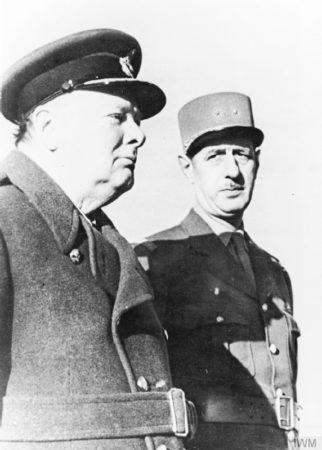During the years I have researched and worked on the three-volume series of Where Did They Put the Gestapo Headquarters? (click here to see the book), I came across many stories, some of which end up as blog posts. My favorite topics include stories about the brave men and women who fought the Nazis as either bona fide resistance fighters, foreign agents, or ordinary people who did what they knew was right knowing full well that death would be their reward if caught.
I particularly enjoy sharing with you the stories of the men and women who risked capture to save the lives of children. (Read the blogs, Kindertransport and Mr. Winton [click here], The French Anne Frank [click here], and Something Must Be Done [click here].) Today’s blog is one of those remarkable stories when two people convinced others of various religious beliefs to work together to save hundreds of Jewish children from the Nazi gas chambers. (Click here to read the blog, The Children Who Survived.)
Did You Know?
Did you know that Winston Churchill is well-known for his often witty, insightful, and biting quotations? Of course you knew this, but I’ll bet you don’t know that Charles de Gaulle was no slouch in the quotation department. Here are some quotes and zingers I picked out for you from that big and loveable French general:
- “No nation has friends, only interests.” (My favorite.)
- “In order to become the master, the politician poses as the servant.”
- “Patriotism is when love of your own people comes first; nationalism, when hate for people other than your own comes first.”
- “I have come to the conclusion that politics are too serious a matter to be left to the politicians.”
- “How can you govern a country which has 246 varieties of cheese?”
- “The better I get to know men, the more I find myself loving dogs.”
- “Since a politician never believes what he says, he is surprised when others believe him.”
- “Always choose the most difficult way; there you will not meet competitors.”
And finally:
- “When I am right, I get angry. Churchill gets angry when he is wrong. We are angry at each other much of the time.”

Winston Churchill and Gen. Charles de Gaulle review French soldiers during their meeting in Marrakesh, Morocco. Photo by anonymous (c. January 1944). Imperial War Museum. PD-UK Government. Wikimedia Commons.
Let’s Meet Moussa & Odette
Moussa Abadi (1910−1997) was born in Syria in the Jewish ghetto of Damascus. He learned to speak French while attending the Jewish Alliance School in Damascus and earned a scholarship to study at the Sorbonne in Paris. Moussa developed a passion for acting and the theater which carried over to his doctorate in literature (i.e., French theater in the Middle Ages). While pursuing an acting career, Moussa met Odette Rosenstock one evening in 1939 and the two of them immediately fell in love. Read More The Marcel Network

